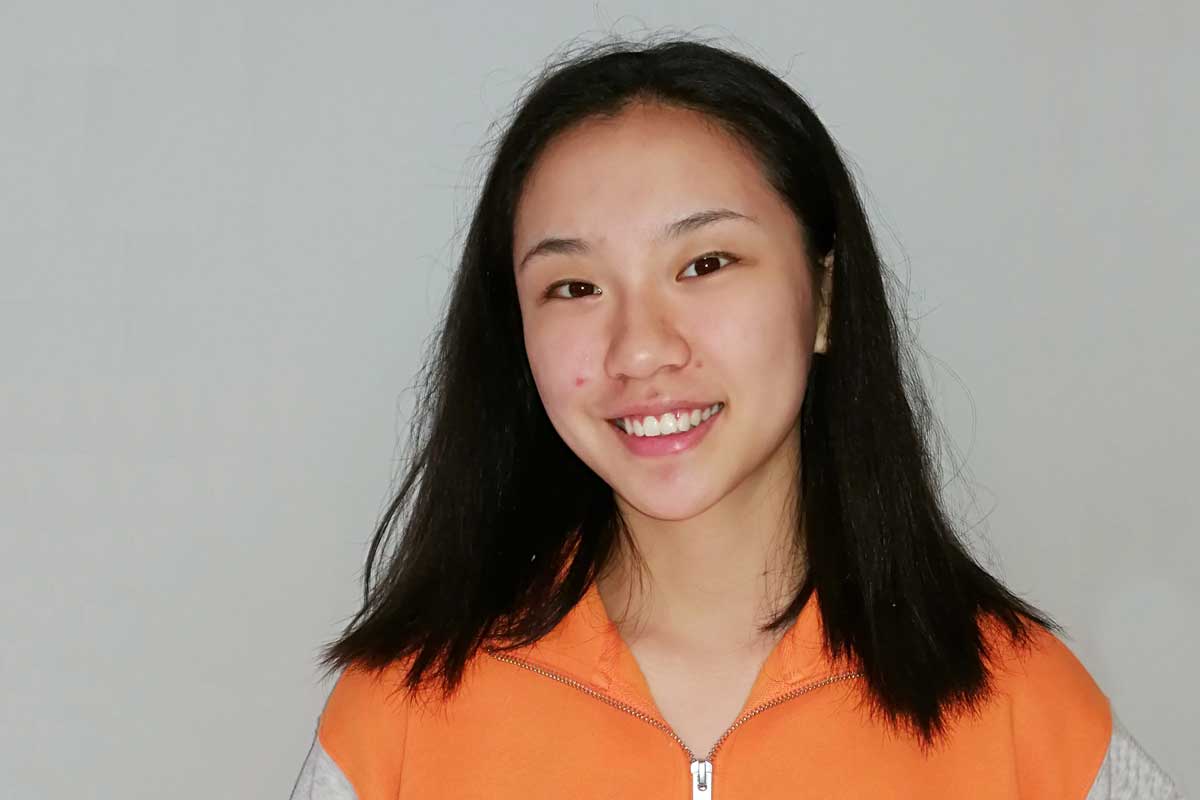 Katie Du is a Canadian student who received a Fulbright Award to study at Wellesley College for the spring 2020 semester. She worked (in-person, then remotely) with WCW Senior Research Scientist Linda Charmaraman to conduct research on adolescents’ social media use. We talked to Katie about her experience at Wellesley and where she’s headed next.
Katie Du is a Canadian student who received a Fulbright Award to study at Wellesley College for the spring 2020 semester. She worked (in-person, then remotely) with WCW Senior Research Scientist Linda Charmaraman to conduct research on adolescents’ social media use. We talked to Katie about her experience at Wellesley and where she’s headed next.
Q. What has your experience at Wellesley been like?
A. My school, the University of Alberta, is a large public university with an emphasis on STEM education. I wanted to get the experience of studying at a private liberal arts college, particularly a women’s college. I knew Wellesley was an excellent school that empowered women, but being here has really expanded my view of what that means. To me, it means giving all of us the ability to empower other women and offer them opportunities to grow. I’ve also been lucky to take courses that happen to be highly relevant to the COVID-19 outbreak. I took a medical anthropology course that examined the idea of quarantine and its history, and cross-registered for a course at MIT on the molecular basis of infectious diseases. These classes have given me critical background on what we’re all going through right now.
Q. What have you been working on with Linda?
A. I’ve gotten the opportunity to work on a lot of different projects with Linda. We began by going through and sorting data on the social media use of adolescents. I developed an infographic based on that data that will be used on the website of Linda’s Youth, Media & Wellbeing Research Lab. We’re now coding using software that marks data in interviews for further analysis. Personally, I don’t use any social media except for Facebook (no one ever believes me!) so it’s interesting to read about different people’s perspectives on it, especially those from a younger generation. It’s cool to learn how technology has evolved and how they’re perceiving it.
Q. What’s next for you?
A. My plan is to go to Kenya this fall for a research internship where I’ll study tuberculosis among patients with HIV and AIDS. Though that plan was formulated before the COVID-19 outbreak, the research is so relevant to our current situation. Infectious diseases are a serious threat to societies and need more attention. COVID-19 should increase our awareness of the possibility of outbreaks and make us think more about how we should prepare for them in the future. I want to be part of solving those problems, either through medical school or a graduate degree in public health down the road.
May 14, 2020

